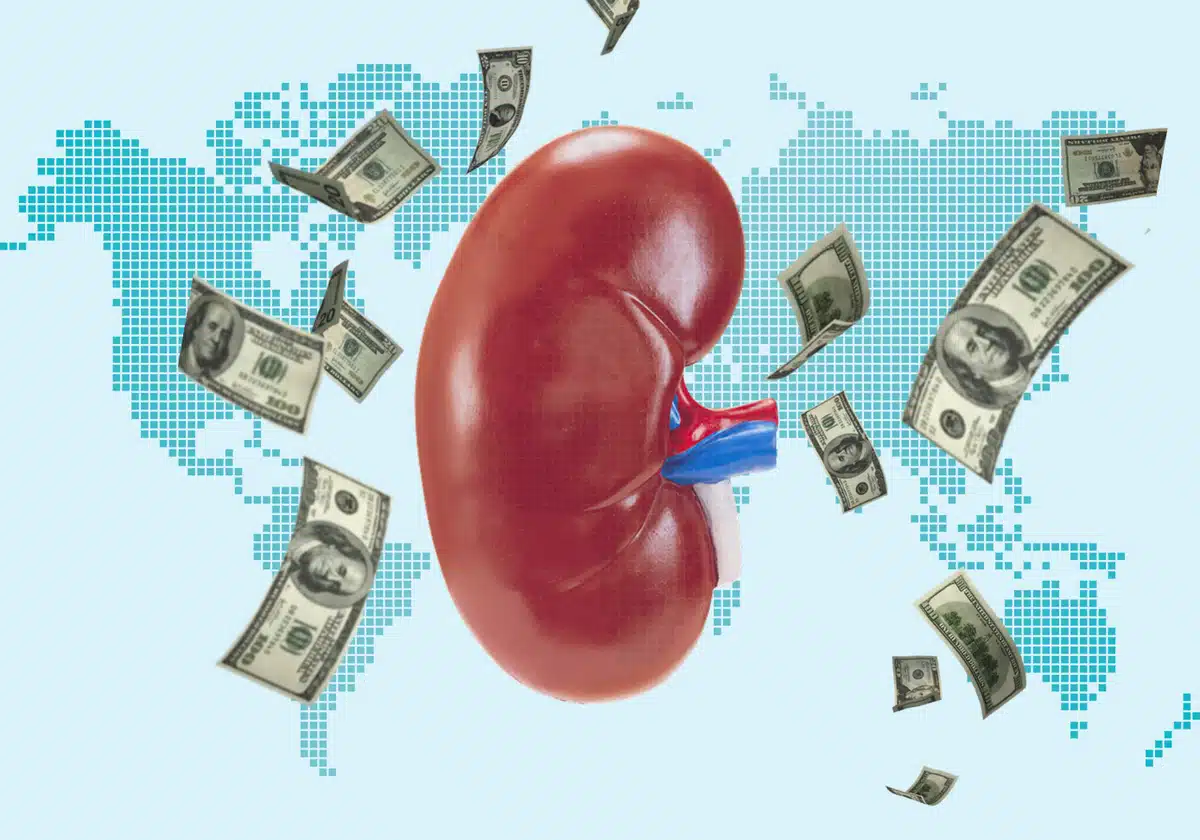Chronic kidney disease (CKD) affects millions of people worldwide. The number of kidney patients is twice that of individuals with diabetes and nearly 20 times higher than those diagnosed with cancer. An estimated 10.5 million people around the globe suffer from end-stage renal disease (ESRD) and require either dialysis or a kidney transplant to survive.
Although neither of these treatments can fully cure the disease, a kidney transplant generally provides patients with a significantly better quality of life. However, due to the severe shortage of donor organs, the demand for kidneys far exceeds the available supply. As a result, many patients spend years on long waiting lists, and sadly, some die before receiving a suitable organ.
Faced with these challenges, an increasing number of patients choose to undergo kidney transplant surgery in private medical centers—either in their home country or abroad—rather than waiting indefinitely. In this article, we will compare the cost of kidney transplants across some of the world’s leading medical tourism destinations.
Factors Affecting the Cost of Kidney Transplantation

Factors Affecting the Cost of a Kidney Transplant
The cost of a kidney transplant can vary significantly from one patient to another, as several individual factors influence the total expense. To accurately estimate the final cost, the patient’s medical history, health condition, and specific needs must be evaluated. Unlike many other medical services with relatively predictable pricing, kidney transplant costs can differ widely because this procedure involves two individuals—the donor and the recipient.
Below are some of the most common factors that affect the overall cost of a kidney transplant:
- The Selected Country
The country where the transplant is performed plays a major role in determining the total cost. For example, the cost of kidney transplantation in Iran is considerably lower than in most other countries, despite offering high-standard medical services. In comparison, undergoing the same procedure in the United States can cost up to eight times more than in Iran. - Number of Required Dialysis Sessions
Before transplantation, patients may need several dialysis sessions to prepare their body for surgery. Additionally, some patients require dialysis during the first few weeks after transplantation until the new kidney fully adapts to the recipient’s body. These sessions can increase the total cost. - Recipient and Donor Health Parameters
Prior to surgery, both the donor and recipient must undergo various laboratory tests, such as blood and biochemical analyses. If any abnormalities are detected, additional medication or treatment may be required, which raises the overall expense. - Type of Donor
When the donor is unrelated or not blood-compatible with the recipient, extra immunosuppressive drugs and close monitoring are needed to prevent rejection. As a result, the total cost of transplantation increases due to the higher dosage and duration of anti-rejection medication. - Length of Hospital Stay
Typically, donors are discharged about five days after surgery, while recipients usually remain hospitalized for 10 to 12 days. However, if any post-surgical complications occur, an extended hospital stay may be necessary, leading to additional charges. - First vs. Second Transplant
The risk of organ rejection is generally higher during a second transplant. Consequently, patients undergoing re-transplantation require more intensive monitoring and stronger or more frequent medication, which contributes to higher medical costs. - Risk of Rejection
The likelihood of kidney rejection also affects the cost. For example, if a patient tests positive for Class II panel-reactive antibodies (PRA), they may need additional preoperative treatments—such as plasmapheresis, intravenous immunoglobulin (IVIG), or rituximab therapy—to minimize the risk of rejection. These treatments can significantly increase the total expense. - Ethics Committee Approval
In cases involving unrelated donors, formal approval from an Ethics Committee is required before the surgery. This process ensures that the donor is voluntarily participating and that the transplantation complies with legal and ethical standards. The administrative steps and documentation involved may also influence the overall cost.
Additional Factors Influencing the Cost of Kidney Transplantation
Beyond the primary factors, several other elements can also affect the total cost of a kidney transplant:
General Health of the Recipient: Patients with pre-existing conditions or weaker overall health may require additional tests, treatments, or monitoring, increasing the cost.
Chosen Hospital: Facilities vary in terms of quality, reputation, and service packages, which can significantly influence the overall expense.
Accommodation: Expenses for hospital-adjacent lodging for patients and companions can add to the total cost, especially in medical tourism cases.
Number of Follow-Up Sessions: Post-transplant check-ups and laboratory tests are essential for monitoring kidney function and adjusting medications, contributing to the overall expense.
Unexpected Complications: Any unforeseen surgical or post-operative complications may require additional procedures, medication, or extended hospitalization, which increases costs.
Cost of Meals: Hospital-provided meals for the patient (and sometimes donor) are typically included in the total cost but can vary depending on the facility.
Cost of Extra Medications: Beyond standard post-transplant medications, additional drugs may be necessary based on patient-specific conditions or complications.
Surgeon’s Experience: Highly experienced surgeons or specialists with a strong track record may charge higher fees, reflecting their expertise and outcomes.
Kidney Transplant Cost in the USA
In the United States, over 94.000 people are on the waiting list to receive a kidney. The waiting time for a deceased donor can take five to even 10 years. Patients’ priority on the list is estimated by the duration of waiting, their blood type, immune system, and other factors. The average cost of a kidney transplant in a private clinic in the USA is about $270,000, which is an extremely high amount for many patients. Costs do not only include the transplant operation, but also the care expenses before and after the operation, hospital expenses, etc.

Kidney Transplant Cost in Germany
Germany is a popular destination for kidney transplantation due to its high-quality medical services and advanced healthcare system. However, the costs are relatively high and may not be affordable for everyone. The starting price for a kidney transplant in Germany is around $90,000, excluding additional expenses such as hospitalization, medications, and post-operative care. Therefore, Germany is generally an option for patients with a strong financial standing who prioritize top-quality medical services over cost.
Kidney Transplant Cost in Turkey
Turkey is the other popular destination for international medical tourism. The cost of a kidney transplant starts from $40,000. You should know that according to the local law of Turkey, the kidney donor must be one of the patient’s relatives.
Kidney Transplant Cost in India
India is well-known for its advanced medical expertise and relatively low treatment costs. The cost of a kidney transplant in India generally ranges from $18,000 to $20,000. Patients considering India for medical tourism should also factor in additional expenses, such as flights, pre-operative evaluations, post-operative care, medications, and accommodation.
Kidney Transplant Cost in Iran
Iran is one of the best medical tourism destinations for kidney transplants. The highly professional physicians and the most affordable prices make Iran one of the best options for renal patients all around the world. In addition, the geographical and historical position of Iran makes this country a unique place for all tourists. The cost of a kidney transplant in Iran is $13,000 to $15,000. It is good to know that now, due to Iran’s currency devaluation, the expenses of accommodation, transportation, and pre- or post-operation care would be very low in comparison to other countries, while the quality of treatment competes with well-known countries such as the U.S.
Conclusion
Kidney transplantation remains the most effective treatment for patients with end-stage renal disease, offering a significantly improved quality of life compared to dialysis. However, the procedure involves numerous factors that influence its cost, including the health of the donor and recipient, the type of donor, hospital choice, length of hospital stay, and potential complications. Additionally, costs vary widely across countries due to differences in healthcare systems, surgical expertise, and living expenses.
For patients seeking kidney transplants, medical tourism presents an opportunity to access high-quality care at a lower cost. Countries such as Iran, India, and Turkey offer affordable options without compromising treatment quality, while destinations like the USA and Germany provide world-class services at higher prices. Ultimately, selecting the right location requires balancing financial considerations, medical standards, and personal circumstances. Understanding the factors that influence cost can help patients make informed decisions and plan their treatment more effectively.














